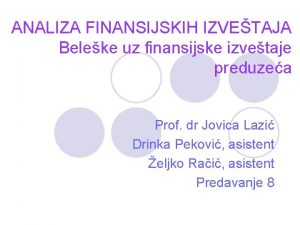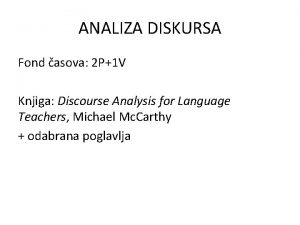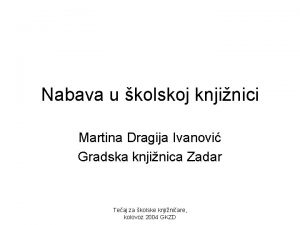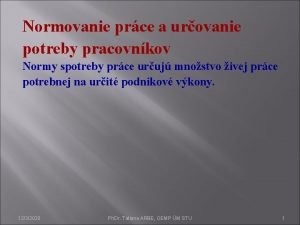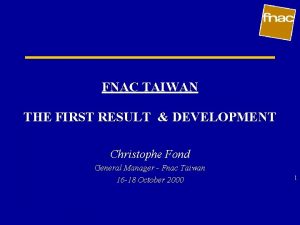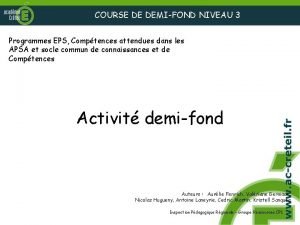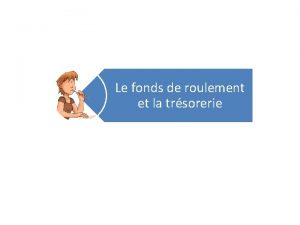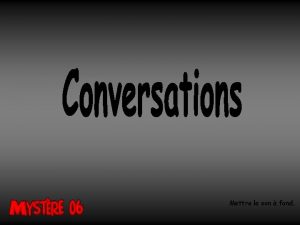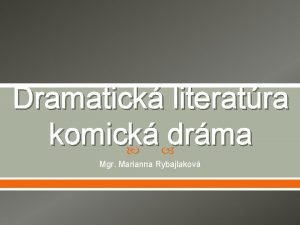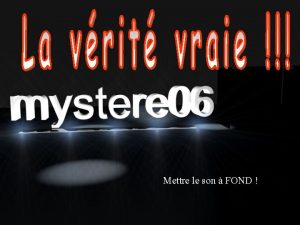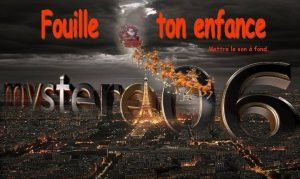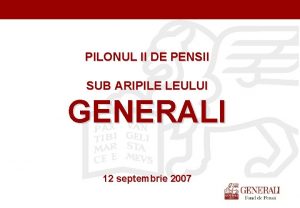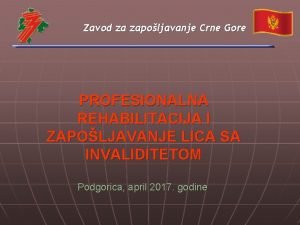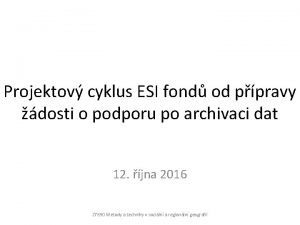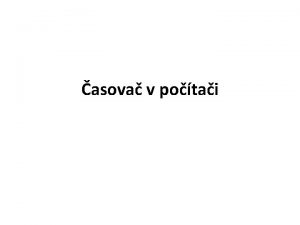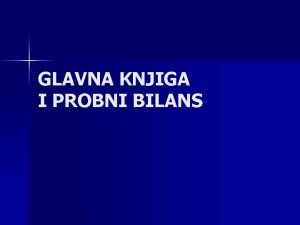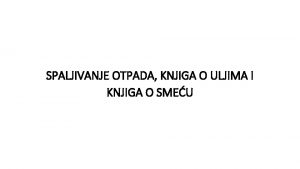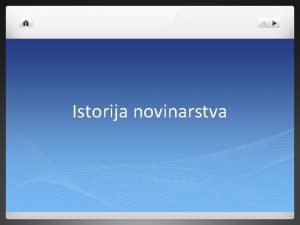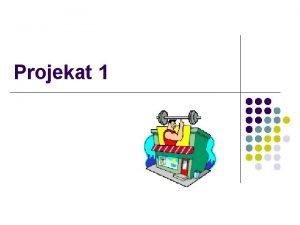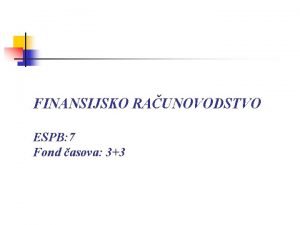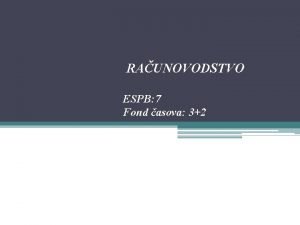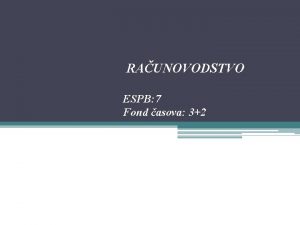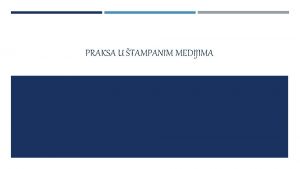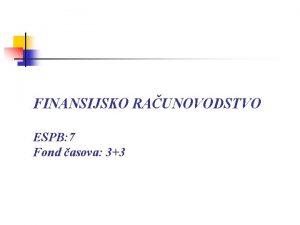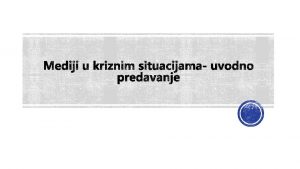ANALIZA DISKURSA Fond asova 2 P1 V Knjiga






















- Slides: 22

ANALIZA DISKURSA Fond časova: 2 P+1 V Knjiga: Discourse Analysis for Language Teachers, Michael Mc. Carthy + odabrana poglavlja

Bodovanje: 1. Dva kolokvijuma (pismeno), 2 x 30 poena (6. i 13. sedmica); 2. završni ispit (pismeno), 35 poena; 3. prisustvo – 5 poena.

Discourse Analysis Lecture I

Discourse Analysis • • • Definition (language + context) Phonetics Morphology Syntax Semantics

Discourse Analysis

Discourse Analysis • Brief historical overview • Zellig Harris (1952) • Influences: French structuralist approach, semiotics and linguistic philosophers (Austin, Searle and Grice) • British approach – Halliday’s functional approach to language; patterns in talk • American approach – ethnomethodological approach; conversation analysis; politeness

Discourse is “language above the sentence or above the clause” (Stubbs, 1983: 1). 1960 s grammarians became convinced of the usefulness of considering stretches longer than individual sentences in their analyses, at least two terms came to be used in parallel fashion: text linguistics and discourse analysis. Originally, some people preferred to use text to refer to written language and kept discourse strictly for oral production. However, we do not make any distinctions between text linguistics and discourse analysis, and between discourse and text, because they are now often used interchangeably.

Discourse ‘Discourse’ refers to any utterance which is meaningful. These texts can be: - written texts - oral texts (‘speech’/’talk’) - mixed written/oral texts (e. g. Internet chat) Discourse does not depend on the size of a text (“P” and “Ladies” can both be analysed as discourse)

Discourse • • A particular unit of language (above the sentence), or discourse in structure; A particular focus on language use, discourse as function.

Discourse Analysis • What does it study? – Examples of analysing discourse structure and functions:

Discourse markers • A: So, I’ve decided I’m going to go to the bank and ask for a car loan. • B: That sounds like a good idea. • C: Well, you need a car. • B: Right. • A: Anyway, I was wondering if either of you would teach me how to drive. • so marks the beginning of a new part of the conversation. • well marks a change in the focus (from getting a car loan to needing a car). • right marks a response (B is agreeing with C). • anyway marks a shift in topic (from buying a new car to having driving lessons).

Discourse cohesion

TEXT STRUCTURE AND FUNCTIONS Clearly, 'America the Beautiful' deserves to be our national anthem. For years now, it has been gaining popularity in school assemblies, at official state functions, and even in our ball parks. The music is simple, dignified, and – most importantly – easy to sing. The lyrics celebrate our history, our land, our heroes, and our future. It is proud but not warlike, idealistic without sounding silly. GENERAL–SPECIFIC PATTERN GENERAL STATEMENT + SPECIFIC ITEM 1 + SPECIFIC ITEM 2 + SPECIFIC ITEM 3

Conversation structure and functions -Do you need help with that? -Definitely! Offer + Acceptance -Chocolate? -I’m on a diet, thanks. Offer + Rejection Well, I have some stuff to do now. - OK. Bye bye. Degreeting + Degreeting

FORM AND FUNCTION - Wasn’t my face red? ! What exactly does this utterance convey? Which emotion? Can we tell?

Form and function Ex. 2: - It’s hot in here. What’s the function of this utterance? What do we want to do with it? Can we tell? What can we do with it?

Hedging – How and why do we hedge our utterances? • There might just be a few insignificant problems we need to address. (adjective) • The party was somewhat spoiled by the return of the parents. (adverb) • I'm not an expert but you might want to try restarting your computer. (clause) • That's false, isn't it? (tag question clause)

Presupposition What do we presuppose in the utterances? Can our presuppositions be unfair? Is it difficult to answer to and recognise unfair presuppositions? • Jane no longer writes fiction. – Presupposition: Jane once wrote fiction. • Have you stopped eating meat? – Presupposition: you had once eaten meat. • Have you talked to Hans? – Presuppositions: Hans exists. You know Hans. • Does your mother know you are a fool? - Presuppositions: You have a mother. You are a fool. (an unfair presupposition)

Conceptual metaphor What do these utterances have in common? In what way do we thinking about arguing with someone? • • Your claims are indefensible. He attacked every weak point in my argument. His criticisms were right on target. I demolished his argument. I’ve never won an argument with him. If you use that strategy, he’ll wipe you out. He shot down all of my arguments. ARGUMENT IS WAR

Euphemisms Why do we use euphemisms? Are they always fair? • War on terror • Ethnic cleansing • NATO intervention • Optimising staff • Substandard housing • Economically disadvantaged

Scope of discourse analysis • Very heterogeneous • Written and spoken language • Discourse analysis is not a discipline which exists on its own. It is influenced by other disciplines and influences them as well. It is a two-way process … • For this reason discourse analysis examines spoken and written texts from all sorts of different areas (medical, legal, advertising) and from all sorts of perspectives (race, gender, power) • Discourse analysis has a number of practical applications - for example in analysing communication problems in medicine, psychotherapy, education, in analysing written style etc.

Some worries & objections It is subjective? - not particularly; argument still has to convince readers, editors etc. , by appeal to established findings & theory Is it useful? - reveals how objects get constituted & unmasks the interests that serves (and perhaps could be resisted) - shows how mundane interaction achieves its business (and perhaps could be improved)
 Analiza finansijskih izveštaja knjiga
Analiza finansijskih izveštaja knjiga Fundamentalna analiza knjiga
Fundamentalna analiza knjiga Fond comercial definitie
Fond comercial definitie Fond
Fond Normovanie
Normovanie Fnac christophe
Fnac christophe Pokrajinski fond za penzijsko i invalidsko osiguranje
Pokrajinski fond za penzijsko i invalidsko osiguranje Eps niveau 3
Eps niveau 3 Trsorerie
Trsorerie Sluitingsuur horeca
Sluitingsuur horeca A fond kiss robert burns
A fond kiss robert burns Le son à fond
Le son à fond Fond za profesionalnu rehabilitaciju
Fond za profesionalnu rehabilitaciju Zmierenie alebo dobrodružstvo pri obžinkoch obsah
Zmierenie alebo dobrodružstvo pri obžinkoch obsah Fond d'écran
Fond d'écran Mettre le son à fond
Mettre le son à fond Le son a fond
Le son a fond Vorname nachname beispiel
Vorname nachname beispiel Fond za profesionalnu rehabilitaciju crna gora
Fond za profesionalnu rehabilitaciju crna gora Esi fond
Esi fond Voilà
Voilà Fond of pets
Fond of pets Fond de decoloration
Fond de decoloration
